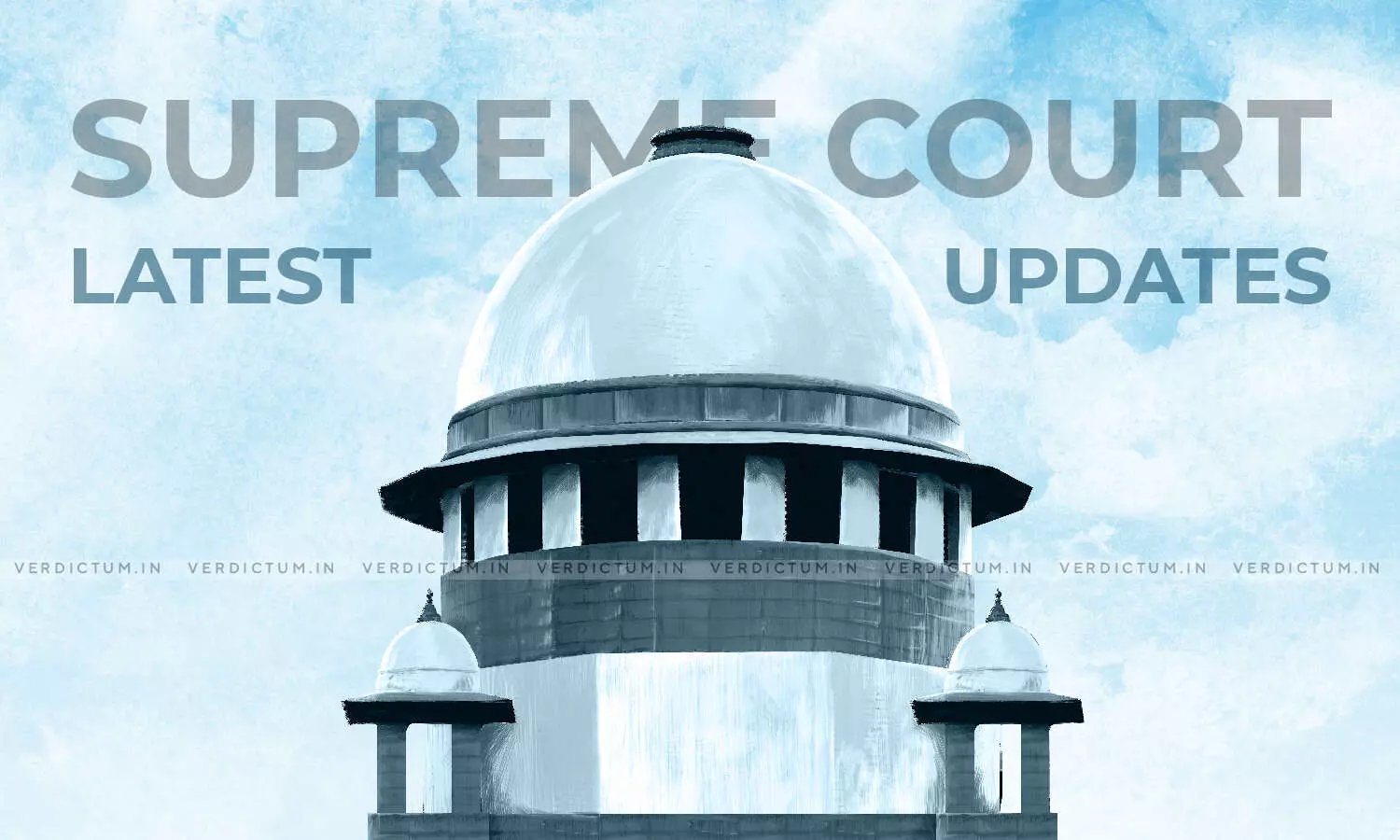
Refuge Status Cannot Be Granted By Judicial Order, Priority Be Given To Own Citizens Due To Limited Resources: Centre Opposes Plea Before SC For Release Of Detained Rohingyas
 |
|Emphasizing that India is not a signatory to the 1951 Refugee Convention and to the Protocol relating to the Status of Refugees, 1967, the Union of India has stated in an Affidavit before the Supreme Court that "whether or not any class of persons are to be recognised as refugees is a pure policy decision."
The Affidavit signed by the Under-Secretary to the Ministry of Home Affairs has been filed in a Public Interest Litigation seeking the release of illegally detained Rohingya refugees in India. The Union stated that the Petitioner seeks to recognise a new legislative class of "refugees," which is not recognised under Indian law.
"As a developing country with the largest population in the world and with limited resources, priority is required to be given to the country's own citizens", the Affidavit states.
Union stated that there cannot be any recognition of refugee status outside the legislative framework, and such a declaration of refugee status cannot be made by judicial order. "As a developing country with the largest population in the world and with limited resources, priority is required to be given to the country's own citizens. Therefore, there cannot be any blanket acceptance of foreigners as refugees, especially where the vast majority of such foreigners have entered the country illegally," it read.
The Union in its Affidavit filed through AoR Arvind Kumar Sharma stated that the continuance of Rohingyas' illegal migration into India and their continued stay in India, apart from being absolutely illegal, is found to be having serious national security ramifications and serious security threats.
"Central Government have received inputs about large number of illegal Rohingya migrants indulging in illegal activities like obtaining fake/ fabricated Indian Identity documents, indulging in human trafficking, indulgence into subversive activities in different parts of the county, which may pose a very serious and potential threat to the internal/ national security of India. Inputs have been received regarding large scale involvement of illegal Rohingya migrants in obtaining fake Indian identity documents like Voter ID cards, Aadhar card as Indian nationals and Indian passports by hiding their original nationality and bypassing the procedure established by law. This has increased the chances of their submerging with the Indian population and has further complicated the security challenges faced by the country," the Affidavit read.
It also stated that the prayers in the Petition are seeking to provide illegal Rohingya migrants with the Right to reside within the territory of India, which is expressly against Article 19.
"The prayer of the Petitioner amounts to re-writing of the statute or directing the Parliament to frame a law in a particular manner which is wholly beyond the powers of judicial review. It is trite law that the Courts cannot direct Parliament to make a law or to legislate in a particular way," it stated.
It further stated, "The Petitioner has also claimed that some of the Rohingya migrants have obtained United Nations High Commissioner for Refugees (UNHCR) refugee cards and that Government of India allows UNHCR-mandated refugees to apply for visas. The contention of the petitioner in this regard is factually incorrect, as Government of India does not recognize UNHCR cards for the purpose of grant of visas."
Pertinently, in October 2023, the Bench of Justice B.R. Gavai and Justice Prashant Kumar Mishra had issued notice to the Union of India in a petition filed by Priyali Sur, an independent multimedia journalist and international development professional. Sur's petition calls for the release of Rohingya refugees who are allegedly being unlawfully detained in India.
The Petition stated that international refugee law prohibits treating refugees and asylum seekers as economic migrants. It alleged that Rohingya refugees detained for being "illegal immigrants" have been held beyond their sentences or the maximum period of detention for foreign nationals, as per India's internal policy.
Referring to the 2011 Ministry of Home Affairs (MHA) standard operating procedure (SOP) for dealing with foreign nationals claiming refugee status, the Petition stated that detainees should be released after six months if diplomatic efforts fail, subject to certain conditions. However, it alleged that this guideline has not been followed for Rohingya refugees, and the 2019 SOP has eliminated this provision altogether. The Petition further criticized the detention of Rohingya refugees under the Foreigners Act, 1946, which lacks specific provisions for vulnerable populations like asylum seekers and refugees. It alleged that the absence of special protections in the Act has allowed the government to penalize refugees for lacking documentation.
Cause Title: Priyali Suri v. Union of India [WP(C) No. 001060/2023]
Click here to read/download Affidavit